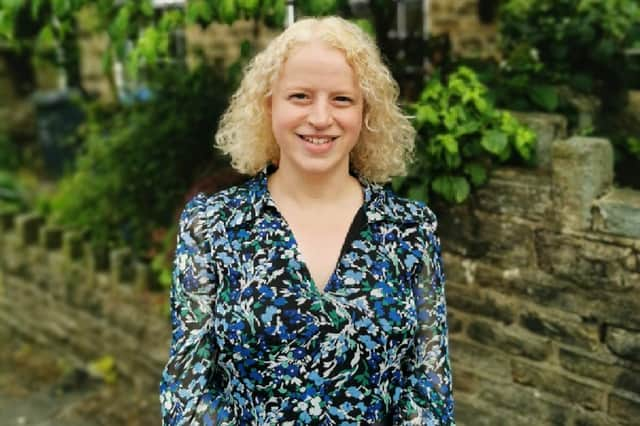Northern Lights: Cruel, inhumane bill will put asylum seekers at even greater risk of harm


And in the last year, hundreds of people have opened their homes to Ukrainian refugees fleeing war.
Solidarity and support groups have sprung up across the city, offering practical and emotional support to people trying to set up new lives here.
Advertisement
Hide AdAdvertisement
Hide AdNow, people across Sheffield are taking to the streets to defend this history, and fight the Government’s latest dangerous, inhumane and illegal attacks on the right to claim asylum.
And I am proud to stand with them.
Next week the Government’s Illegal Migration Bill will return to Parliament.
The new legislation will effectively ban asylum claims from anyone who isn’t able to arrive in the UK through one of the few bespoke schemes, such as Homes for Ukraine or the Afghanistan Resettlement scheme.
It will also grant the Home Secretary extensive new powers to detain and deport asylum seekers, including unaccompanied children.
Advertisement
Hide AdAdvertisement
Hide AdExperts from the United Nations refugee agency have warned that this bill, if implemented, would amount to an asylum ban, breaching the Refugee Convention of which the UK is a proud signatory.
The UK representative at the UN high commission for refugees has even warned that the bill could lead to the collapse of the whole system of international protection for refugees.
But the Government doesn’t want to know.
Instead, the Home Office has repeatedly claimed that the bill is the “fair” thing to do.
That it is the only way to save lives and stop people smugglers.
And worst of all, that it is what the British public want.
Advertisement
Hide AdAdvertisement
Hide AdLet’s be clear: the so-called Illegal Migration Bill is cruel, inhumane and unworkable.
It will put asylum seekers at even greater risk of harm, it won’t save lives or stop people smugglers, and it is not what people in our city, or communities across the country, want.
Since 2018, 56 people have tragically drowned in the Channel – yet the number of small boat arrivals has risen.
Attempts to intensify the deterrent, such as the Nationality and Borders Act and the government’s Rwanda policy, have not stopped people from making the crossing.
Advertisement
Hide AdAdvertisement
Hide AdIn fact, the number of people travelling here on small boats has increased.
The many people I speak to in our city who support refugee rights often quote the lines of a poem called Home, by the Somali-British writer Warsan Shire: “no one puts their children in a boat unless the water is safer than the land”.
And, “no one leaves home unless home is the mouth of a shark.”
Those lines are important, because they not only explain why people attempt these crossings, but also why the Illegal Migration Bill won’t address the humanitarian crisis in the Channel.
Advertisement
Hide AdAdvertisement
Hide AdIf we want to save lives, ministers need to change their approach, drop the cruel and inhumane deterrence policies – which are killing people, and look at real solutions.
That’s why I have, and will continue to, vote against this bill at every stage.
And it is why I have tabled an amendment to the bill – supported by PCS Union and Care for Calais, two organisations working on the front line of the crisis – which offers an actual alternative: a practical and humane solution.
My amendment would create a “safe passage” visa which gives entry clearance to those already in Europe wishing to come to the UK to make an asylum claim.
Advertisement
Hide AdAdvertisement
Hide AdWhile not the same as the Ukrainian resettlement schemes, it draws inspiration from them.
The schemes have not been perfect, but no Ukrainian refugee has made a dangerous crossing to get here.
It wasn’t necessary because an application for safe passage could be made online.
Like the Ukrainian schemes, application for a safe passage visa would be made online, with documents and any necessary biometric information uploaded to an online portal.
Advertisement
Hide AdAdvertisement
Hide AdIf successful, the applicant would be sent an electronic letter that they could use to enter the UK.
The proposal is tightly focused on addressing the humanitarian crisis unfolding in the Channel, Calais, and elsewhere in Europe.
For that reason, it differs from humanitarian visa proposals in which screening and processing take place before travel to the UK.
Instead, the safe passage visa would grant access to the UK to someone in Europe based on whether an applicant would have a valid asylum claim – as set out in the current immigration rules – when they arrive.
Advertisement
Hide AdAdvertisement
Hide AdMost of the screening and processing associated with the claim itself would therefore happen as normal in the UK.
The vast majority of people who come here irregularly, on a small boat, make an asylum claim; and overwhelmingly those applications are accepted.
They are forced to make the dangerous crossing not because they are less likely to be granted refuge, but because there is no alternative way for them to enter the UK.
A safe passage visa would remove the need to risk life and limb, and in doing so, it would save lives.